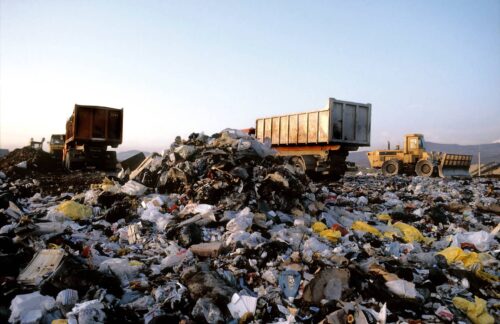
Report | 2022
Key Strategies for Mitigating Methane Emissions from Municipal Solid Waste
Methane has been responsible for roughly 30 percent of global warming since preindustrial times, and it has more than 80 times the global warming impact of carbon dioxide over a 20-year period. The waste sector is currently the third-largest source of anthropogenic methane emissions (behind the oil and gas industry and livestock digestion), accounting for almost 20 percent of total methane emissions.
The time-bound urgency of the climate crisis has put methane in the spotlight. We must address methane emissions from the waste sector now — starting with municipal solid waste — to meet critical targets for emissions reductions, including the Global Methane Pledge and the Paris Agreement.
The Key Strategies for Mitigating Methane Emissions from Municipal Solid Waste report highlights the most effective ways to mitigate methane emissions from municipal solid waste. Implementing these actions can begin aligning the waste sector with a 1.5°C climate pathway in this decisive decade. Improved intelligence from satellite monitoring, flyovers, and other enhanced emissions monitoring technologies can drastically reduce methane emissions by giving landfill operators, policymakers, and communities the intelligence needed to implement methane management and mitigation best practices.